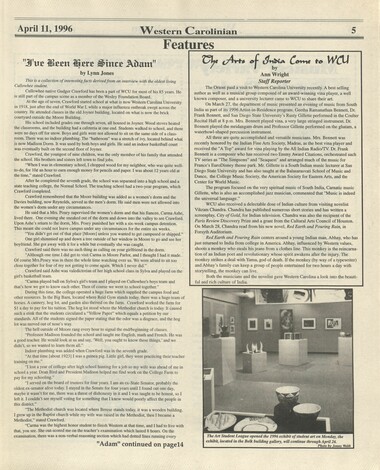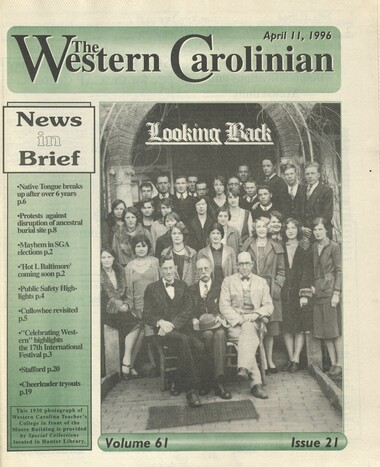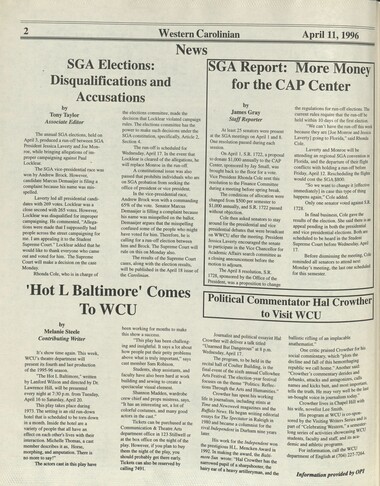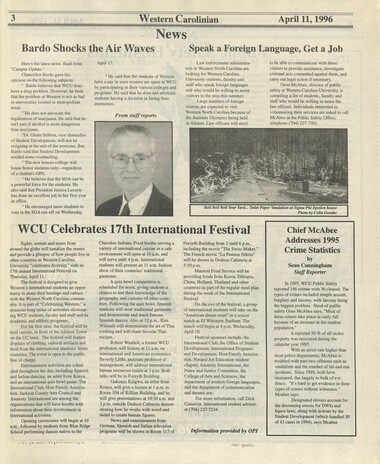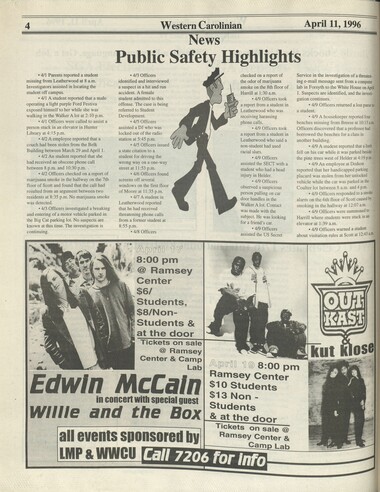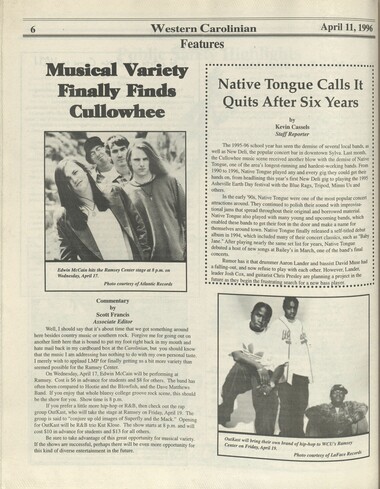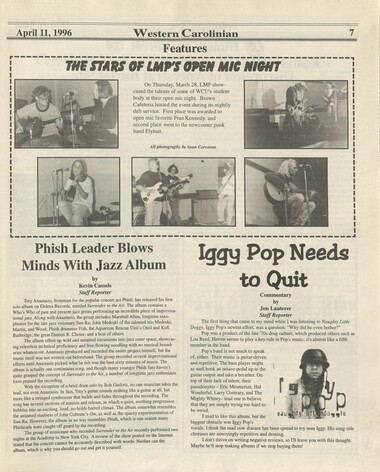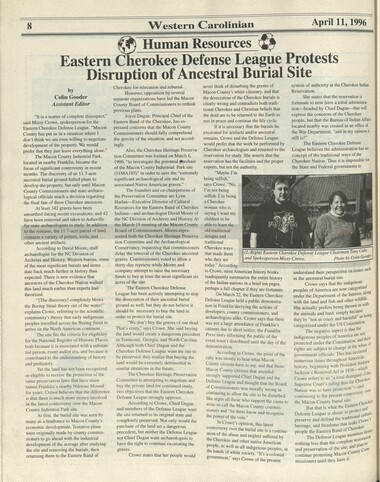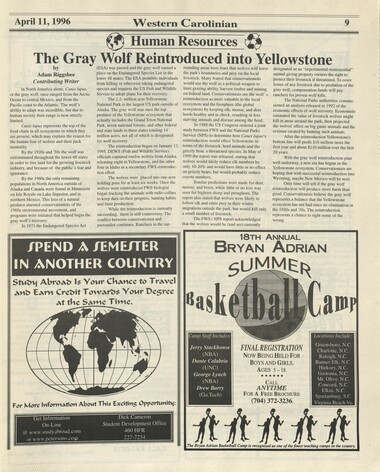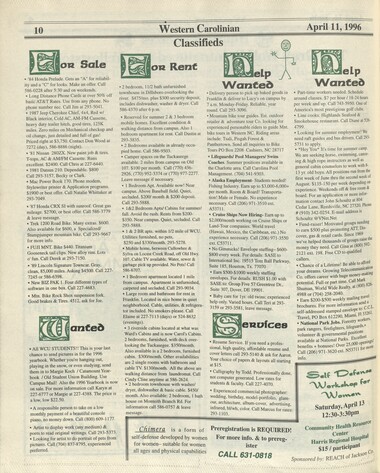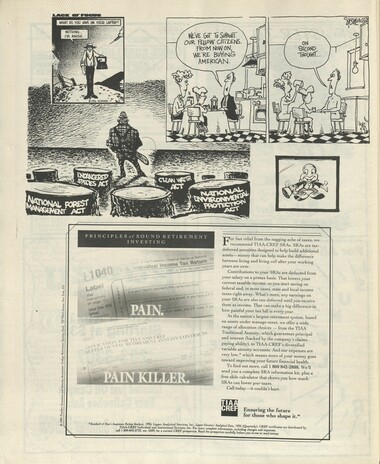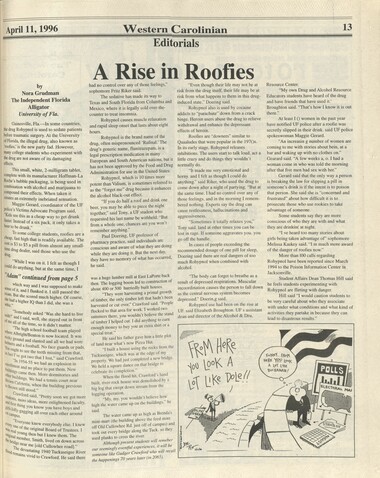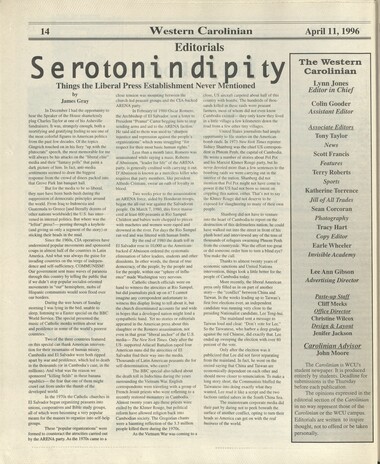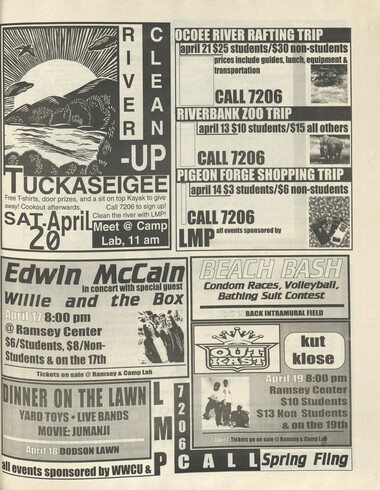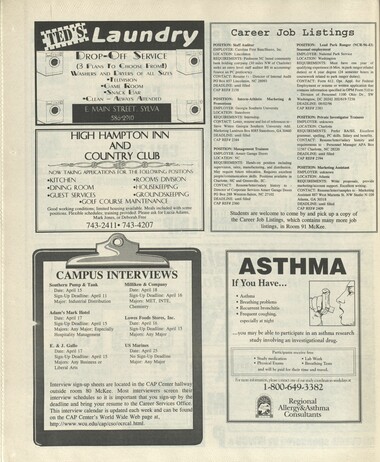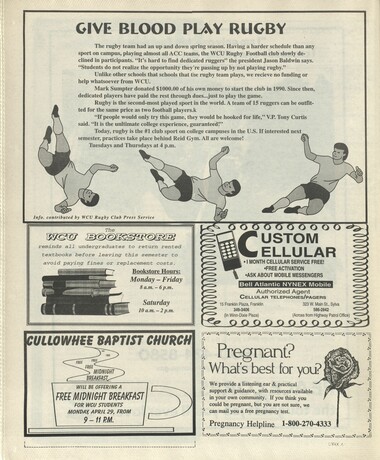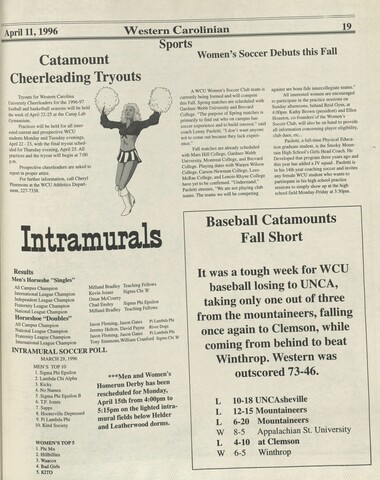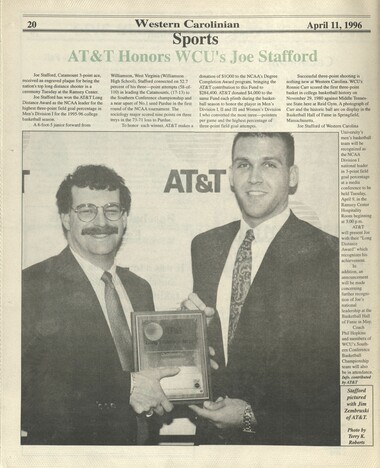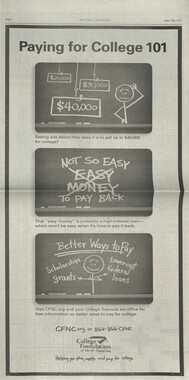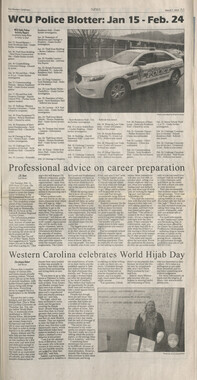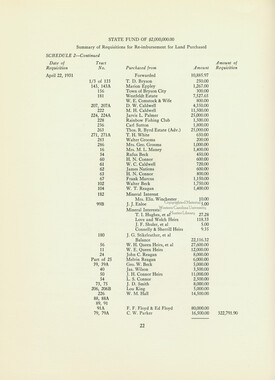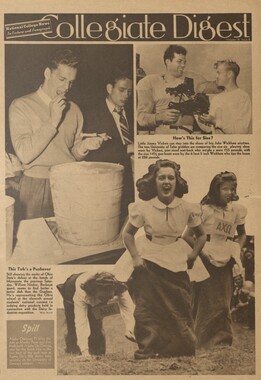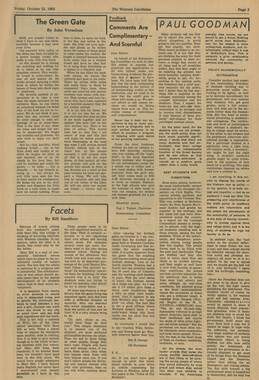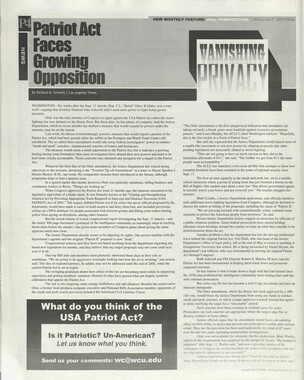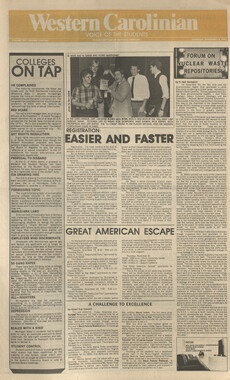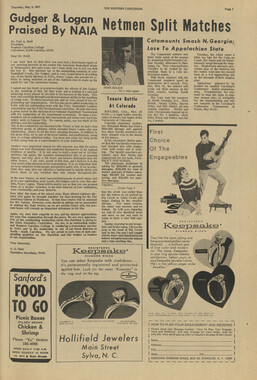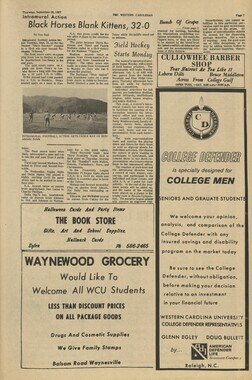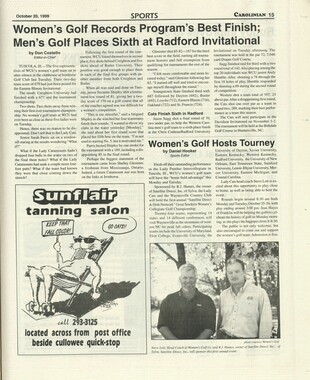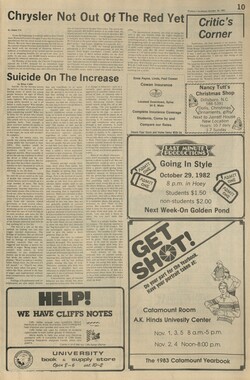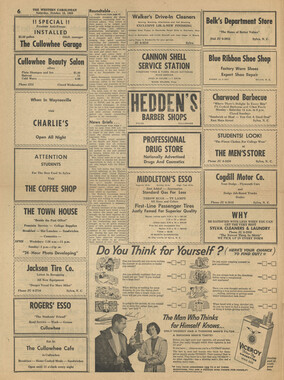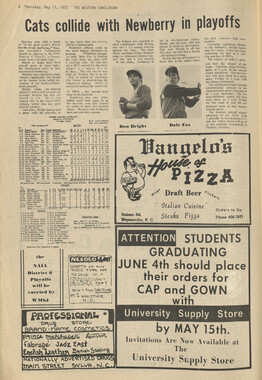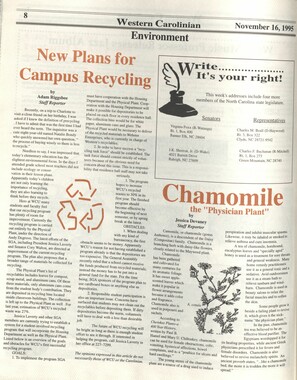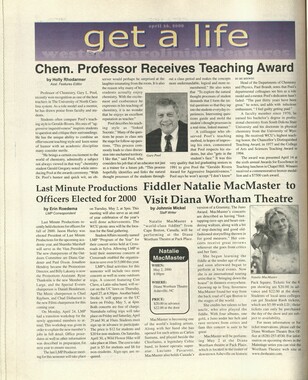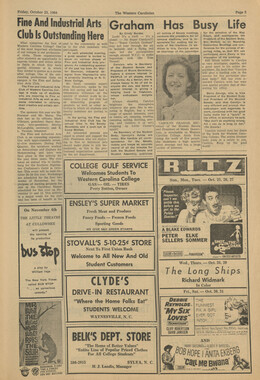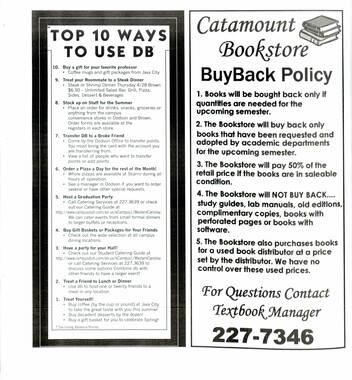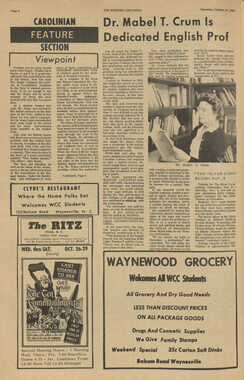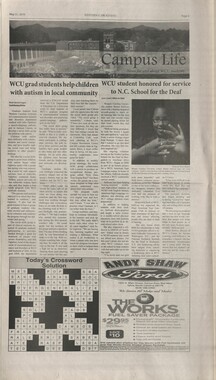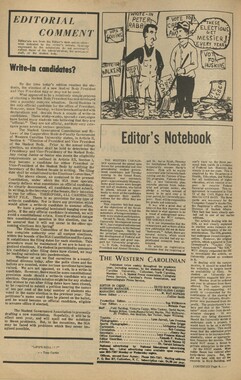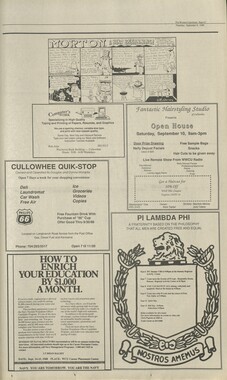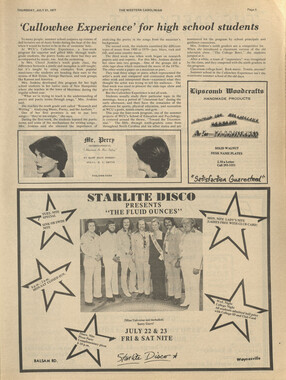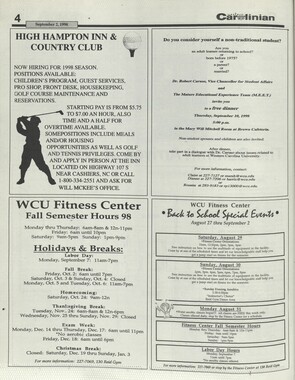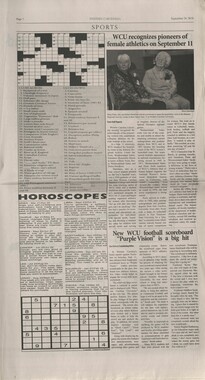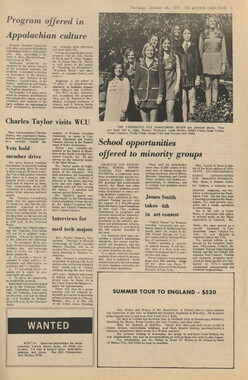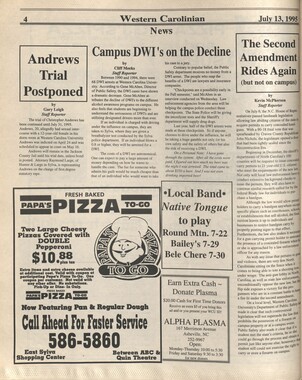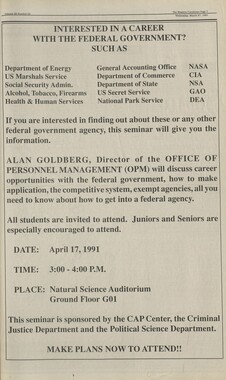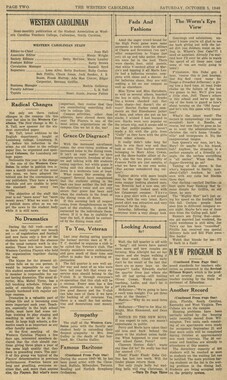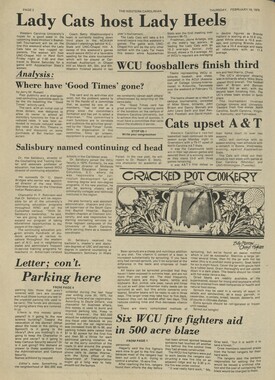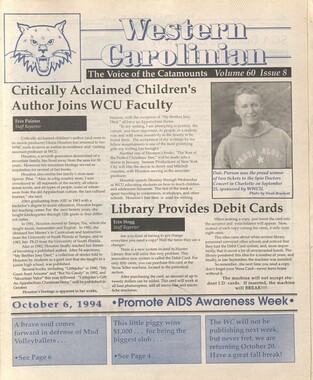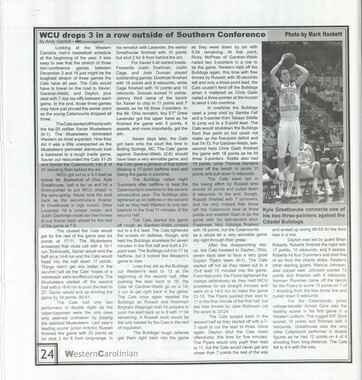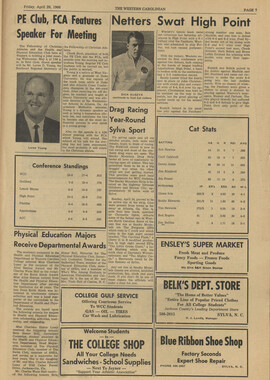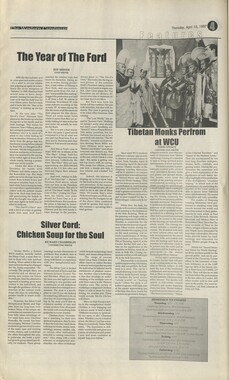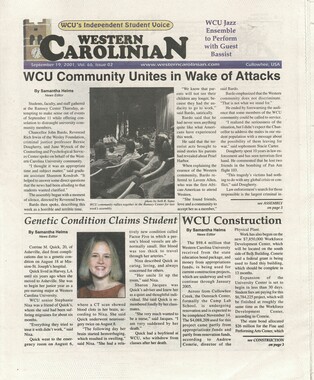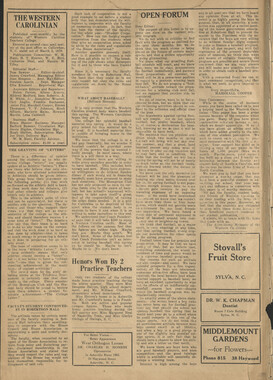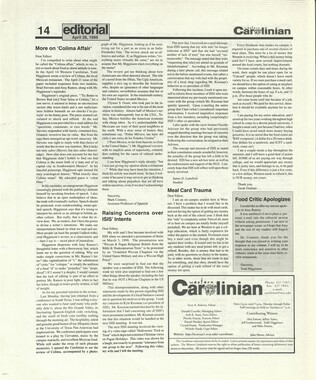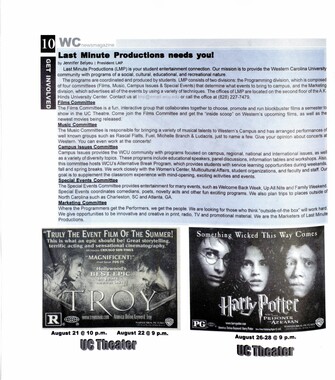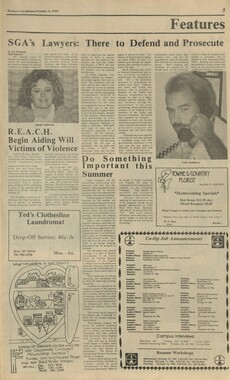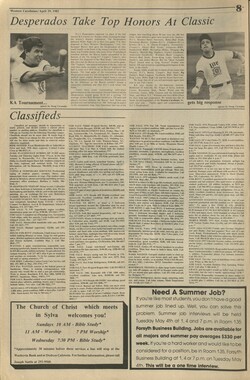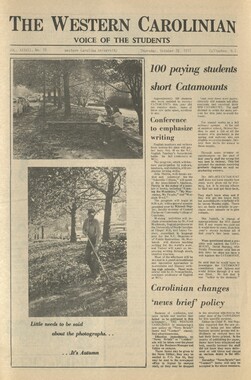Western Carolina University (21)
View all
- Canton Champion Fibre Company (2308)
- Cherokee Traditions (291)
- Civil War in Southern Appalachia (165)
- Craft Revival (1942)
- George Masa Collection (137)
- Great Smoky Mountains - A Park for America (3080)
- Highlights from Western Carolina University (422)
- Horace Kephart (973)
- Journeys Through Jackson (159)
- LGBTQIA+ Archive of Jackson County (89)
- Oral Histories of Western North Carolina (318)
- Picturing Appalachia (6617)
- Stories of Mountain Folk (413)
- Travel Western North Carolina (153)
- Western Carolina University Fine Art Museum Vitreograph Collection (129)
- Western Carolina University Herbarium (92)
- Western Carolina University: Making Memories (738)
- Western Carolina University Publications (2491)
- Western Carolina University Restricted Electronic Theses and Dissertations (146)
- Western North Carolina Regional Maps (71)
- World War II in Southern Appalachia (131)
University of North Carolina Asheville (6)
View all
- Allanstand Cottage Industries (62)
- Appalachian National Park Association (53)
- Bennett, Kelly, 1890-1974 (1463)
- Berry, Walter (76)
- Brasstown Carvers (40)
- Carver, George Washington, 1864?-1943 (26)
- Cathey, Joseph, 1803-1874 (1)
- Champion Fibre Company (233)
- Champion Paper and Fibre Company (297)
- Cherokee Indian Fair Association (16)
- Cherokee Language Program (22)
- Crowe, Amanda (40)
- Edmonston, Thomas Benton, 1842-1907 (7)
- Ensley, A. L. (Abraham Lincoln), 1865-1948 (275)
- Fromer, Irving Rhodes, 1913-1994 (70)
- George Butz (BFS 1907) (46)
- Goodrich, Frances Louisa (120)
- Grant, George Alexander, 1891-1964 (96)
- Heard, Marian Gladys (60)
- Kephart, Calvin, 1883-1969 (15)
- Kephart, Horace, 1862-1931 (313)
- Kephart, Laura, 1862-1954 (67)
- Laney, Gideon Thomas, 1889-1976 (439)
- Masa, George, 1881-1933 (61)
- McElhinney, William Julian, 1896-1953 (44)
- Niggli, Josephina, 1910-1983 (10)
- North Carolina Park Commission (105)
- Osborne, Kezia Stradley (9)
- Owens, Samuel Robert, 1918-1995 (11)
- Penland Weavers and Potters (36)
- Roberts, Vivienne (15)
- Roth, Albert, 1890-1974 (142)
- Schenck, Carl Alwin, 1868-1955 (1)
- Sherrill's Photography Studio (2565)
- Southern Highland Handicraft Guild (127)
- Southern Highlanders, Inc. (71)
- Stalcup, Jesse Bryson (46)
- Stearns, I. K. (213)
- Thompson, James Edward, 1880-1976 (226)
- United States. Indian Arts and Crafts Board (130)
- USFS (683)
- Vance, Zebulon Baird, 1830-1894 (1)
- Weaver, Zebulon, 1872-1948 (58)
- Western Carolina College (230)
- Western Carolina Teachers College (282)
- Western Carolina University (2008)
- Western Carolina University. Mountain Heritage Center (18)
- Whitman, Walt, 1819-1892 (10)
- Wilburn, Hiram Coleman, 1880-1967 (73)
- Williams, Isadora (3)
- Cain, Doreyl Ammons (0)
- Crittenden, Lorraine (0)
- Rhodes, Judy (0)
- Smith, Edward Clark (0)
- Appalachian Region, Southern (3032)
- Asheville (N.C.) (1945)
- Avery County (N.C.) (26)
- Blount County (Tenn.) (195)
- Buncombe County (N.C.) (1680)
- Cherokee County (N.C.) (283)
- Clay County (N.C.) (556)
- Graham County (N.C.) (238)
- Great Smoky Mountains National Park (N.C. and Tenn.) (525)
- Haywood County (N.C.) (3573)
- Henderson County (N.C.) (70)
- Jackson County (N.C.) (4925)
- Knox County (Tenn.) (35)
- Knoxville (Tenn.) (13)
- Lake Santeetlah (N.C.) (10)
- Macon County (N.C.) (421)
- Madison County (N.C.) (216)
- McDowell County (N.C.) (39)
- Mitchell County (N.C.) (135)
- Polk County (N.C.) (35)
- Qualla Boundary (982)
- Rutherford County (N.C.) (78)
- Swain County (N.C.) (2185)
- Transylvania County (N.C.) (270)
- Watauga County (N.C.) (12)
- Waynesville (N.C.) (86)
- Yancey County (N.C.) (72)
- Aerial Photographs (3)
- Aerial Views (60)
- Albums (books) (4)
- Articles (1)
- Artifacts (object Genre) (228)
- Bibliographies (1)
- Biography (general Genre) (2)
- Cards (information Artifacts) (38)
- Clippings (information Artifacts) (192)
- Copybooks (instructional Materials) (3)
- Crafts (art Genres) (622)
- Depictions (visual Works) (21)
- Design Drawings (1)
- Digital Moving Image Formats (2)
- Drawings (visual Works) (185)
- Envelopes (101)
- Exhibitions (events) (1)
- Facsimiles (reproductions) (1)
- Fiction (general Genre) (4)
- Financial Records (12)
- Fliers (printed Matter) (67)
- Glass Plate Negatives (381)
- Guidebooks (2)
- Internegatives (10)
- Interviews (823)
- Land Surveys (102)
- Letters (correspondence) (1045)
- Manuscripts (documents) (618)
- Maps (documents) (177)
- Memorandums (25)
- Minutes (administrative Records) (59)
- Negatives (photographs) (6090)
- Newsletters (1290)
- Newspapers (2)
- Notebooks (8)
- Occupation Currency (1)
- Paintings (visual Works) (1)
- Pen And Ink Drawings (1)
- Periodicals (194)
- Personal Narratives (10)
- Photographs (12977)
- Plans (maps) (1)
- Poetry (6)
- Portraits (4568)
- Postcards (329)
- Programs (documents) (181)
- Publications (documents) (2444)
- Questionnaires (65)
- Relief Prints (26)
- Sayings (literary Genre) (1)
- Scrapbooks (282)
- Sheet Music (2)
- Slides (photographs) (402)
- Songs (musical Compositions) (2)
- Sound Recordings (802)
- Specimens (92)
- Speeches (documents) (18)
- Tintypes (photographs) (8)
- Transcripts (329)
- Text Messages (0)
- A.L. Ensley Collection (275)
- Appalachian Industrial School Records (7)
- Appalachian National Park Association Records (336)
- Axley-Meroney Collection (2)
- Bayard Wootten Photograph Collection (20)
- Bethel Rural Community Organization Collection (7)
- Blumer Collection (5)
- C.W. Slagle Collection (20)
- Canton Area Historical Museum (2110)
- Carlos C. Campbell Collection (462)
- Cataloochee History Project (64)
- Cherokee Studies Collection (4)
- Daisy Dame Photograph Album (5)
- Daniel Boone VI Collection (1)
- Doris Ulmann Photograph Collection (112)
- Elizabeth H. Lasley Collection (1)
- Elizabeth Woolworth Szold Fleharty Collection (4)
- Frank Fry Collection (95)
- George Masa Collection (173)
- Gideon Laney Collection (452)
- Hazel Scarborough Collection (2)
- Hiram C. Wilburn Papers (28)
- Historic Photographs Collection (236)
- Horace Kephart Collection (861)
- Humbard Collection (33)
- Hunter and Weaver Families Collection (1)
- I. D. Blumenthal Collection (4)
- Isadora Williams Collection (4)
- Jesse Bryson Stalcup Collection (47)
- Jim Thompson Collection (224)
- John B. Battle Collection (7)
- John C. Campbell Folk School Records (80)
- John Parris Collection (6)
- Judaculla Rock project (2)
- Kelly Bennett Collection (1482)
- Love Family Papers (11)
- Major Wiley Parris Civil War Letters (3)
- Map Collection (12)
- McFee-Misemer Civil War Letters (34)
- Mountain Heritage Center Collection (4)
- Norburn - Robertson - Thomson Families Collection (44)
- Pauline Hood Collection (7)
- Pre-Guild Collection (2)
- Qualla Arts and Crafts Mutual Collection (12)
- R.A. Romanes Collection (681)
- Rosser H. Taylor Collection (1)
- Samuel Robert Owens Collection (94)
- Sara Madison Collection (144)
- Sherrill Studio Photo Collection (2558)
- Smoky Mountains Hiking Club Collection (616)
- Stories of Mountain Folk - Radio Programs (374)
- The Reporter, Western Carolina University (510)
- Venoy and Elizabeth Reed Collection (16)
- WCU Gender and Sexuality Oral History Project (36)
- WCU Mountain Heritage Center Oral Histories (25)
- WCU Oral History Collection - Mountain People, Mountain Lives (71)
- WCU Students Newspapers Collection (1923)
- Western North Carolina Tomorrow Black Oral History Project (69)
- William Williams Stringfield Collection (2)
- Zebulon Weaver Collection (109)
- African Americans (390)
- Appalachian Trail (35)
- Artisans (521)
- Cherokee art (84)
- Cherokee artists -- North Carolina (10)
- Cherokee language (21)
- Cherokee pottery (101)
- Cherokee women (208)
- Church buildings (190)
- Civilian Conservation Corps (U.S.) (111)
- College student newspapers and periodicals (2012)
- Dams (108)
- Dance (1023)
- Education (222)
- Floods (63)
- Folk music (1015)
- Forced removal, 1813-1903 (2)
- Forest conservation (220)
- Forests and forestry (1198)
- Gender nonconformity (4)
- Great Smoky Mountains National Park (N.C. and Tenn.) (181)
- Hunting (47)
- Landscape photography (25)
- Logging (122)
- Maps (83)
- Mines and mineral resources (9)
- North Carolina -- Maps (18)
- Paper industry (38)
- Postcards (255)
- Pottery (135)
- Railroad trains (72)
- Rural electrification -- North Carolina, Western (3)
- School integration -- Southern States (2)
- Segregation -- North Carolina, Western (5)
- Slavery (5)
- Sports (452)
- Storytelling (243)
- Waterfalls -- Great Smoky Mountains (N.C. and Tenn.) (66)
- Weaving -- Appalachian Region, Southern (280)
- Wood-carving -- Appalachian Region, Southern (328)
- World War, 1939-1945 (173)
Western Carolinian Volume 61 Number 21
Item
Item’s are ‘child’ level descriptions to ‘parent’ objects, (e.g. one page of a whole book).
-
-
April 11,1996 Western Carolinian Features "5ftie i&zm W^txt §>\ntz iViiam" by Lynn Jones This is a collection of interesting facts derived from an interview with the oldest living Cullowhee student. Cullowhee native Gudger Crawford has been a part of WCU for most of his 85 years. He is still part of the campus scene as a member of the Wesley Foundation Board. At the age of seven, Crawford started school at what is now Western Carolina University in 1918, just after the end of World War I, while a major influenza outbreak swept across the country. He attended classes in the old Joyner building, located on what is now the brick courtyard outside the Moore Building. His school included grades one through seven, all housed in Joyner. Wood stoves heated the classrooms, and the building had a cafeteria at one end. Students walked to school, and there were no days off for snow. Boys and girls were not allowed to sit on the same side of a classroom. There was no indoor plumbing. The "bathroom" was a stretch of ivy, located behind what is now Madison Dorm. It was used by both boys and girls. He said an indoor basketball court was eventually built on the second floor of Joyner. Crawford, the youngest of nine children, was the only member of his family that attended the school. His brothers and sisters left town to find jobs. "When I was in elementary school, I chopped wood for my neighbor, who was quite well- to-do, for 100 an hour to earn enough money for pencils and paper. I was about 12 years old at the time," stated Crawford. After he completed the seventh grade, the school was separated into a high school and a state teaching college, the Normal School. The teaching school had a two-year program, which Crawford completed. Crawford remembered that the Moore building was added as a women's dorm and the Davies building, now Reynolds, served as the men's dorm. He said men were not allowed into the women's dorm under any circumstances. He said that a Mrs. Posey supervised the women's dorm and that his fiancee, Carma Ashe, lived there. One evening she sneaked out of the dorm and down into the valley to see Crawford. Upon Ashe's return to the dorm, Mrs. Posey punished her with a six-week campus detention. This meant she could not leave campus under any circumstances for the entire six weeks. "You didn't get out of that place [Moore] unless you wanted to get campused or shipped." One girl shimmied up and down a tree outside of her window in Moore to go and see her boyfriend. She got away with it for a while but eventually she was caught. Crawford said there was no such thing as calling on your girlfriend in the dorm. "Although one time I did get to visit Carma in Moore Parlor, and I thought I had it made. Of course Mrs.Posey was in there the whole time watching over us. We were afraid to sit too close together for fear of my not getting to come again. Which I never did." Crawford said Ashe was valedictorian of her high school class in Sylva and played on the girl's basketball team. "Carma played ball on Sylva's girl's team and I played on Cullowhee's boys team and that's how we got to know each other. Then of course we went to school together." During this time, the college operated a huge farm which supplied the campus food and other resources. In the Big Barn, located where Reid Gym stands today, there was a huge team of horses. A cannery, hog lot, and garden also thrived on the farm. Crawford worked the farm for $1 a day to pay for his tuition. The hog lot stood where the Methodist church is today. It caused such a stink that the students circulated a "Yellow Paper" which equals a petition by our standards. All of the students signed the paper stating that the odor was a disgrace, and the hog lot was moved out of nose's way. The bell outside of Moore rang every hour to signal the end/beginning of classes. "Professor Madison founded the school and taught me English, math and French. He was a good teacher. He would look at us and say, 'Well, you ought to know these things,' and we didn't, so we wanted to learn them all." Indoor plumbing was added when Crawford was in the seventh grade. "At that time [about 1923] I was a guinea pig. Little girl, they were practicing their teacher training on me." "I lost a year of college after high school hunting for a job so my wife was ahead of me in school a year. Dean Bird and President Madison helped me find work on the College Farm to pay for my schooling." "I served on the board of trustees for four years. I am an ex-State Senator, probably the oldest ex-senator alive today. I stayed in the Senate for four years until I found out one day, maybe it wasn't for me, there was a threat of dishonesty in it and I was taught to be honest, so I left it. I couldn't see myself voting for something that I knew would poorly affect the people in this district." "The Methodist church was located where Breese stands today, it was a wooden building. I grew up in the Baptist church while my wife was raised in the Methodist, then I became a Methodist," stated Crawford. "Carma was the highest honor student to finish Western at that time, and I had to live with that, you see. She out-scored me on the teacher's examination which lasted 8 hours. On the examination, there was a non-verbal reasoning section which had dotted lines running every \5hc cAirt * *f & by WCXi Ann Wright Staff Reporter The Orient paid a visit to Western Carolina University recently. A best selling author as well as a musical group composed of an award-winning vina player, a well known composer, and a university lecturer came to WCU to share their art. On March 27, the department of music presented an evening of music from South India as part of its 1996 Artist-in-Residence program. Geetha Ramanathan Bennett, Dr. Frank Bennett, and San Diego State University's Rusty Gillette performed in the Coulter Recital Hall at 8 p.m. Mrs. Bennett played vina, a very large stringed instrument. Dr. Bennett played the mridahgam drum and Professor Gillette performed on the ghatam, a waterbowl-shaped percussion instrument. All three are quite accomplished and versatile musicians. Mrs. Bennett was recently honored by the Indian Fine Arts Society, Madras, as the best vina player and received the "A Top" award for vina playing by the All Indian Radio/TV. Dr. Frank Bennett is a composer who has received two Emmy Award Citations, orchestrated such TV series as "The Simpsons" and "Seaquest" and arranged much of the music for France's EuroDisney theme park. Mr. Gillette is a South Indian music lecturer at San Diego State University and has also taught at the Balasarasvati School of Music and Dance, the College Music Society, the American Society for Eastern Arts, and the Center for World Music. The program focused on the very spiritual music of South India, Carnatic music Gillette, who is also an accomplished jazz musician, commented that "Music is indeed the universal language." WCU also received a delectable dose of Indian culture from visiting novelist Vikram Chandra. Chandra has published numerous short stories and has written a screenplay, City of Gold, for Indian television. Chandra was also the recipient of the Paris Review Discovery Prize and a grant from the Cultural Arts Council of Houston. On March 28, Chandra read from his new novel, Red Earth and Pouring Rain, in Forsyth Auditorium. Red Earth and Pouring Rain centers around a young Indian man, Abhay, who has just returned to India from college in America. Abhay, influenced by Western values, shoots a monkey who steals his jeans from a clothes line. This monkey is the reincarnation of an Indian poet and revolutionary whose spirit awakens after the injury. The monkey strikes a deal with Yama, god of death. If the monkey (by way of a typewriter) and Abhay's family can keep a group of people entertained for two hours a day with storytelling, the monkey can live. Both the musicians and the novelist gave Western Carolina a look into the beautiful and rich culture of India. "Adam" continued on pagel4
Object
Object’s are ‘parent’ level descriptions to ‘children’ items, (e.g. a book with pages).
-
The Western Carolinian is Western Carolina University's student-run newspaper. The paper was published as the Cullowhee Yodel from 1924 to 1931 before changing its name to The Western Carolinian in 1933.
-
